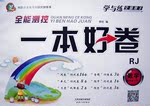题目内容
My earliest bee experience took place at a summer camp. One day our teacher told us to head up the hill nearby. We all began to 31 our destination. The girls took the concrete stairs, but the boys ran 32 up the grassy hill, at the top of which sat a long wooden fence(围栏). Without 33 the boys ahead of me vaulted(跃过) over the fence bravely.
What should I do? Take the stairs and 34 a girl, or jump over the fence and look 35 ? Then I took my chance with the fence. I placed both 36 on the top and jumped, feeling uneasy. I didn’t 37 it. As I tried, my foot 38 on the top of the fence. Down I went! I landed on my backside. I tried to 39 off the accident, but then I felt something moving 40 me. Just then I saw 41 seemed like hundreds of bees flying toward me. I had landed on a beehive(蜂窝)! I 42 up and rushed as fast as I could. But the bees flew faster. What a/an 43 situation I was in!
My clothes were covered with 44 . I parked myself in the camp and I was at a loss. 45 this, my teacher quickly took off all my clothes but underwear. Bees flew out of my clothes and 46 out of my mouth!
I had gained the 47 of all the campers, but I didn’t feel cool. I had been 48 almost 40 bees stings(蛰) all over my body. I learned a most 49 lesson that day. When we are led by the 50 to show off(炫耀), we might find ourselves sitting on a beehive.
| 【小题1】 |
|
| 【小题2】 |
|
| 【小题3】 |
|
| 【小题4】 |
|
| 【小题5】 |
|
| 【小题6】 |
|
| 【小题7】 |
|
| 【小题8】 |
|
| 【小题9】 |
|
| 【小题11】 |
|
| 【小题12】 |
|
| 【小题13】 |
|
| 【小题14】 |
|
| 【小题15】 |
|
| 【小题16】 |
|
| 【小题17】 |
|
| 【小题18】 |
|
| 【小题19】 |
|
| 【小题20】 |
|
【小题1】A
【小题2】D
【小题3】B
【小题4】C
【小题5】A
【小题6】B
【小题7】D
【小题8】D
【小题9】C
【小题10】B
【小题11】C
【小题12】A
【小题13】A
【小题14】D
【小题15】B
【小题16】D
【小题17】B
【小题18】C
【小题19】A
【小题20】C
解析试题分析:
【小题1】A 动词辨析。A快速移动B步行C设置D得到;我们都快速跑向我们的目的地。
【小题2】D 副词辨析。A已经B开心C快速D径直;女孩子走台阶,男孩子径直冲向草地。
【小题3】B 名词辨析。A快乐B恐惧C帮助D运气;一点也不害怕,男孩子们越过了栅栏。
【小题4】C 短语辨析。A感觉像B关心,照顾C看起来D等待;走台阶看起来像女孩子。
【小题5】A 形容词辨析。A酷B担心C强壮D兴奋;走台阶看起来像女生;越过栅栏似乎很酷的样子。
【小题6】B 名词辨析。A脚B手C胳膊D腿;我用双手抓住栅栏的上部。
【小题7】D 固定词组。Make it做到了,成功;根据下文我摔倒说明我没有成功。
【小题8】D 动词辨析。A到达B得到C踏上D卡住;指我的脚卡在了篱笆的顶上。
【小题9】C 固定词组。Laugh off以笑来去除…的尴尬。我想要笑来去除自己摔倒的尴尬。
【小题10】B 上下文串联。根据下文可知我从篱笆顶上摔了下来,掉到了蜜蜂窝上了,那么蜂窝就在我身体下面。
【小题11】C 语法分析。本题中的what引导宾语从句,并在句中做主语。
【小题12】A 动词辨析。A跳B站立C捡起D坐;掉到蜜蜂窝上,我很害怕,跳了起来,尽可能快地跑开。
【小题13】.A 形容词辨析。A尴尬B绝望C困难D开心;指我被蜜蜂追赶,这种情况真让人尴尬。
【小题14】D 上下文串联。我掉到了蜜蜂我上面,蜜蜂追着蛰我,那么我的衣服上应该都是蜜蜂了。
【小题15】B 介词辨析。At this在这时,at指在具体的时刻。
【小题16】D 副词辨析。指蜜蜂从我的衣服里飞了出来,甚至从我的嘴里飞出来,这是一种夸张的说法。
【小题17】B 名词辨析。A经历B注意C知识D尊敬;我引起了所有宿营人的注意。
【小题18】C 动词辨析。A得到B发现C给以D放置;这是一个被动语态,指我被蛰了40多下。
【小题19】A 形容词辨析。A贵重的B最深的C困难的D成功的;在那一天我学会了最珍贵的一个教训。
【小题20】C 名词辨析。A勇气B领导人C欲望D老师;当我们被炫耀的欲望所领导时,我们就好像是踩在蜜蜂窝上。
考点:考查寓言类短文阅读
点评:本文属于夹叙夹议类短文。叙述了我在宿营的时候遇见蜜蜂窝的事情,告诉我们不要炫耀,因为炫耀会让我们付出代价,就像是踩到了马蜂窝一样。答题前一定要读懂全文,弄清文章要表达的思想,注意前后段落之间的关系。答题中,一定要认真分析,注意选项与上下文的关系,与前后单词的关系。对于一时没有太大的把握的题可以放到最后再来完成,因为有时答案可以从下文内容体现出来。答完后再通读一篇文章,看看所选选项能不能是语句通顺,语意连贯。

 全能测控一本好卷系列答案
全能测控一本好卷系列答案Last week my youngest son and I visited my father at his new home in Tucson, Arizona. He moved there a few years ago, and I was eager to see his now place and meet his friends.
My earliest memories of my father are a tall, handsome, successful man devoted to his work and family but uncomfortable with his children. As a child I loved him; as a school girl and young adult(成年人)I feared him and felt bitter about him. He seemed unhappy with me unless I got straight A’s and unhappy with my boy friends if their fathers were not as “successful” as he was. Whenever I went out with him on weekends, I used to struggle to think up things to say, feeling on guard.
On the first day of my visit, we went out with one of my father’s friends for lunch at an outdoor cafe. We walked along that afternoon, did some shopping, ate on the street table, and laughed over my son’s funny facial expressions. Gone was my father’s critical(挑剔的)air and strict rules. Who was this person I knew as my father, who seemed so friendly and interesting to be around? What had held him back before?
The next day my dad pulled out his childhood pictures and told me quite a few stories about his own childhood. Although our times together became easier over the years, I never felt closer to him at that moment. After so many years, I’m at last seeing another side of my father. And in so doing, I’m delighted with my new friend. My dad, in his new home in Arizona, is back to me from where he was.
【小题1】Why did the author feel bitter about her father as a young adult?
| A.He was silent most of the time | B.He was too proud of himself |
| C.He did not love his children | D.He expected too much of her |
| A.nervous | B.sorry | C.tired | D.safe |
| A.More critical | B.More talkative |
| C.Gentle and friendly | D.Strict and hard-working |
| A.the author’s son | B.the author’s father |
| C.the friend of the author’s father | D.the cafe owner |